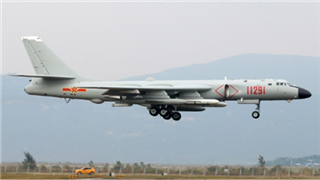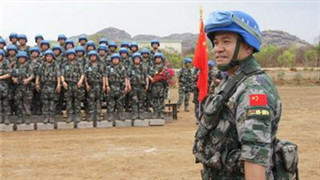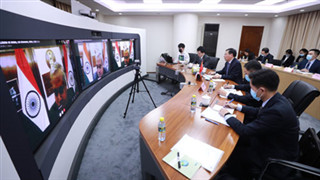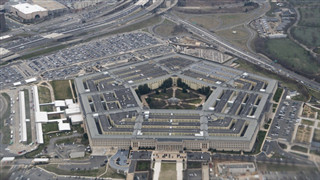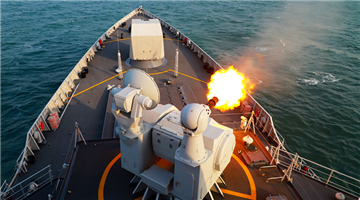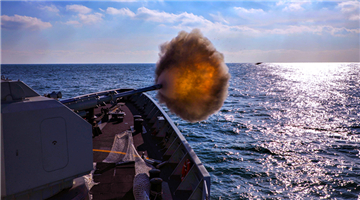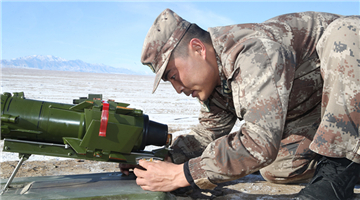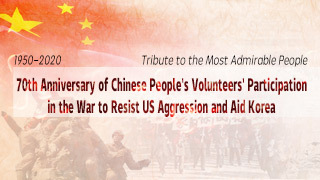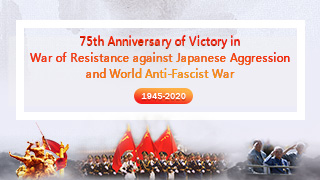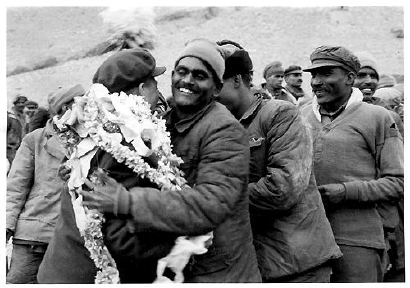
By Sun Wenjing and Liang Jun
In 1962, the PLA military captured 3968 Indian prisoners of war (POWs) in the Counterattack in Self Defense on the China-India Border. What have they undergone in China back then?
"We were treated as guests"
At that time, the government under Nehru proclaimed that these India troops captured by the Chinese People’s Liberation Army (PLA) would end up being beheaded or acting as coolies just as those captured by the Japanese military in World War II. Therefore, once captured, the Indian service members often dared not lift their heads or immediately knelt down andsubmitted to arrest with folded arms.
However, they soon discovered that the Chinese were not demons: the PLA did not even tie the surrenders up, not to mention insulting and killing, but handed water and biscuits to the hungry and thirsty; meanwhile, the personnel belongings of the POWs were also returned after checking and registering. Brigadier John ParashuramDalvi, commander of the Indian 7th Brigade, a highest military officer of the Indian troops captured, recalled that he was surprised when the PLA soldiers never casted a look at his gold watch which he thought would be doomed to lose.
The PLA’s kindheartedness and justice dispelled the fear of Indian POWs. Some of them even took the initiative to help the PLA call on other Indian troops to surrender. In the end, thousands of Indian POWs were gathered in rear shelters such as Zayu, Longzi, Qiongjie, and so on for proper settlement.
Compared with the requirements of the Geneva Convention, Indian POWs enjoyed extra-standard humane treatment. In addition to being unable to enter and exit at will, they hardly had a sense of POWs, even could amuse themselves by participating in =cultural and sports activities, such as playing basketball, listening to the radio, and watching movies, and contacted their families. An Indian veteran,once a POW of the Japanese military in World War II, claimed that they were treated as guests there.
No aiming at China
The PLA attached importance to both guaranteeing the proper daily life of Indian POWs and imparting correct ideological education to help them understand the territorial issues along the China-India border. Twenty-seven Indian POWs were arranged to visit Beijing, Wuhan, Nanjing, Shanghai, and Hangzhou, and in particular, visited eight factories and a people’s commune. Senior officers among the captured personnel were also arranged to sit on the viewing standwhile watching the May Day celebrations and fireworks displays at invitation. In addition, the Chinese side also allowed some Indian POWs to go to the Indian Embassy in Beijing.
The captured Indian soldiers at the grassroots level felt personalistic equality and respect even more. Inheriting the British colonialism mantle, the Indian military features a strict internal hierarchy. They were accustomed to submissively accept their status, but the Chinese cadres resolutely put an end to this bad habit and demanded that both captive officers and soldiers of India work together. Meanwhile, the PLA cadres also set a good example and took the lead in undertaking dirty jobs.
Though the Indian POWs felt that it was just a publicity stunt by the Chinese at first, they realized over time that everyone in the PLA is indeed equal, with no distinction between lowliness nor nobleness. A PLA captain also took the initiative to deliver medicine to a sick corporal among the IndianPoWs, whosighed with emotion that "there are separated washrooms for soldiers and officers in the Indian military; it is incredible that the officers can deliver medicine to the soldiers in China!"
During the few months of capture, a majority of Indian military officers changed in thinking. When facing the indifferent and suspicious receiving representatives as they returned for handover, most Indian PoWs said to the PLA officers: "India and China were enemies once before, but we will never aim our guns at China afterwards!"
"I wish to be a POW in China forever"
The due diligence and sincerity of the Chinese military personnel have made a vast number of Indian POWs friends. At the end of spring and the beginning of summer in 1963, the first batch of Indian POWs released volunteered to send thank-you letters to the PLA officers before leaving, saying that "the friendship with Chinese friends will be maintained forever." Besides, some Indian POWs folded the paper money into garlands as presents of departing; an Indian POW sent a handkerchief embroidered with "Forgot me not" to the PLA officers,and some insisted on sending the ancestral rings or bracelets as souvenirs.
At the time of departing, many Indian POWs bid farewell to the PLA cadres with tears in their eyes, and some even cried and said that they did not want to leave. An Indian POW said directly, “I wish to be a PoW in China forever.”
During the handover, the Indian representatives repeatedly instigated the Indian POWs to "make troubles", hoping to save face to a certain degree. However, the Indian PoWs shouted “the Chinese and Indian people are brothers”, instead of "Long live India", and brought the Chinese souvenirs and books along with them to come home instead of throwing them away on the spot. One of the PoWs even brought up to 37 books back home.
(This article is originally published on Xinmin News Net, one of the biggest mainstream news networks based in Shanghai City. It is translated from Chinese into English and edited by the China Military Online. The information, ideas or opinions appearing in this article do not necessarily reflect the views of eng.chinamil.com.cn.)

